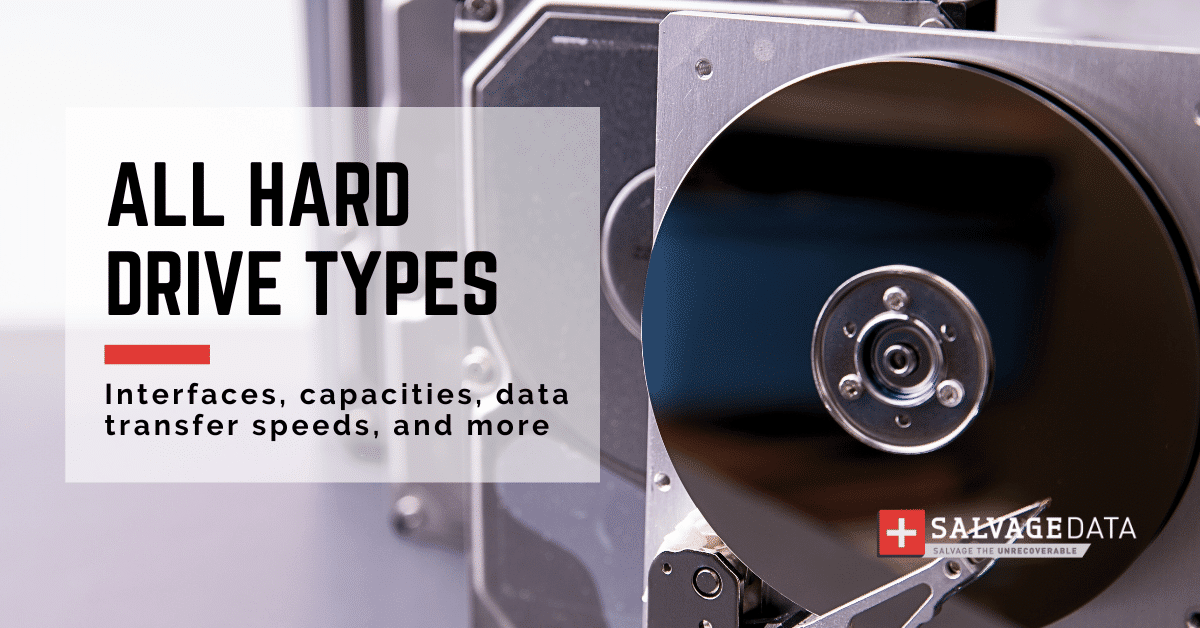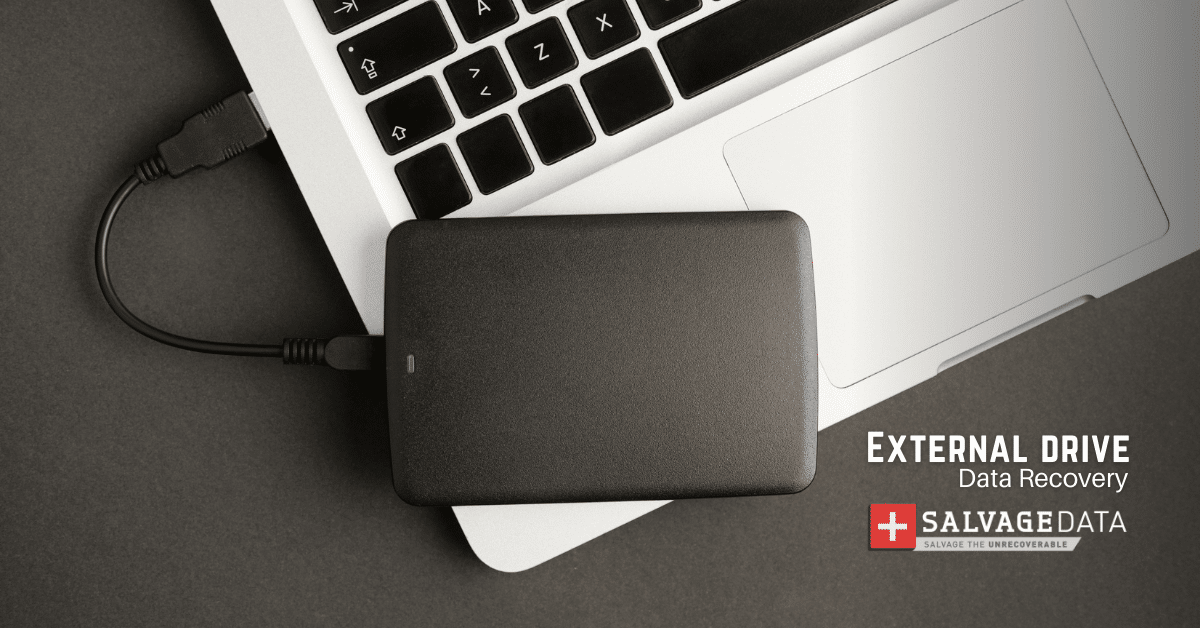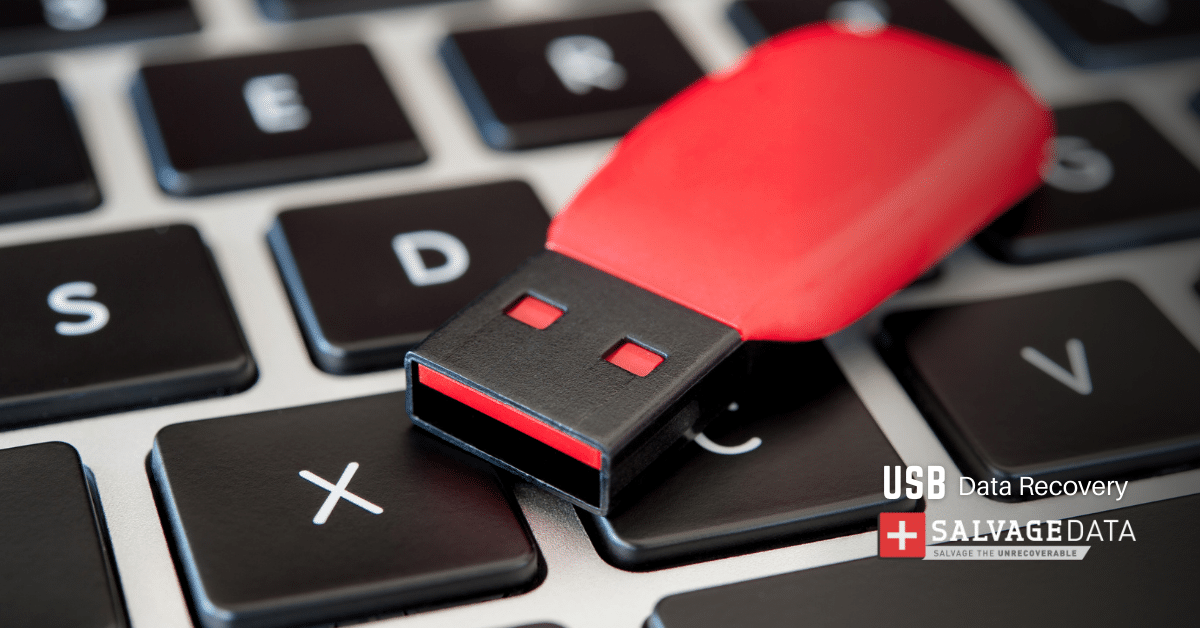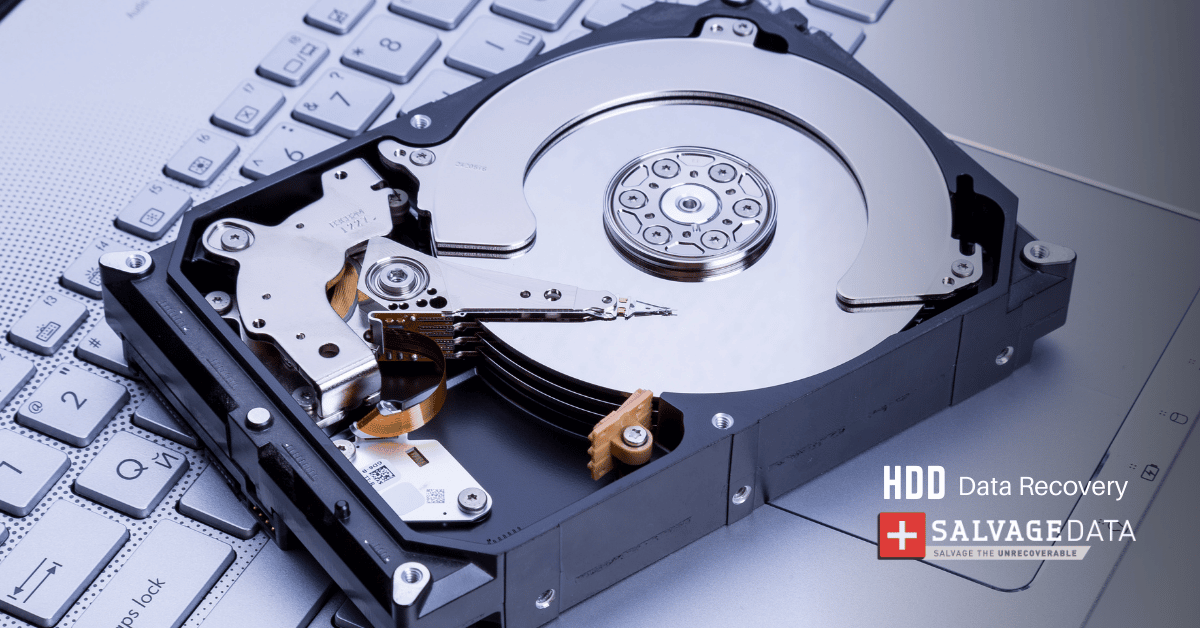
I think there's an issue with my storage device, but I'm not sure Start a free evaluation →
I need help getting my data back right now Call now (800) 972-3282
When it comes to data storage, hard drives have long been a fundamental component of computing systems. Over the years, various types of hard drives have emerged, each with its own set of features and advantages.
In this comprehensive guide, we’ll dive into the world of hard drives and explore the different types available in the market today.
How many types of hard drives are there?
Hard drives can be broadly categorized into several types, each designed to cater to specific needs and preferences. Let’s start by taking a look at the most common ones:
1. SATA Hard Drive
SATA (Serial Advanced Technology Attachment) hard drives are among the most prevalent in modern computing. They are known for their reliability and affordability, making them a popular choice for personal and business use. SATA hard drives are typically found in desktop computers and laptops.
Pros:
- Affordability: SATA drives are generally more budget-friendly than other types of hard drives.
- Widespread Compatibility: SATA drives are widely compatible with most computers and motherboards.
- Good Storage Capacity: SATA drives are available in various capacities, making them suitable for a range of storage needs.
Cons:
- Slower Speed: SATA drives are slower compared to SSDs and some other interfaces.
- Mechanical Parts: Like PATA drives, SATA drives have moving mechanical parts that can fail over time.
2. PATA Hard Drive (IDE)
PATA (Parallel Advanced Technology Attachment) hard drives, also known as IDE (Integrated Drive Electronics) drives, were once a standard in older computers. While they have become less common, they are still used in some legacy systems. PATA drives are characterized by their wide, flat data cables.
Pros:
- Legacy Support: PATA drives are useful for older systems that do not support SATA or newer technologies.
Cons:
- Slow Speed: PATA drives are considerably slower than SATA and SSD options.
- Obsolete: PATA drives are becoming increasingly obsolete as newer technologies emerge.
3. SCSI Hard Drive
SCSI (Small Computer System Interface) hard drives are typically found in enterprise-level environments due to their high performance and reliability. These drives are commonly used in servers and workstations where speed and data integrity are critical.
Pros:
- High Performance: SCSI drives offer high data transfer rates and low latency, making them suitable for demanding tasks.
- Reliability: SCSI drives are known for their reliability and are often used in enterprise environments.
Cons:
- Cost: SCSI drives tend to be more expensive than SATA drives and other consumer-grade options.
- Complexity: SCSI setups can be complex to configure, and compatibility may be limited.
4. Hybrid Hard Drive
Hybrid drives combine traditional hard drive storage with a small amount of solid-state storage (SSD). This hybrid approach offers a balance between storage capacity and speed, making them suitable for laptops and gaming consoles.
Pros:
- Balanced Performance: Hybrid drives offer a blend of the storage capacity of HDDs and the speed of SSDs, making them suitable for various applications.
- Cost-Effective Speed: They provide a cost-effective way to boost system speed without the high cost of a large SSD.
Cons:
- Limited SSD Portion: The SSD portion is typically relatively small, limiting the speed improvement in comparison to dedicated SSDs.
- Not as Fast as SSDs: Hybrids are not as fast as dedicated SSDs in terms of boot times and application loading.
5. SSD (Solid State Drive)
SSD, or Solid State Drive, has revolutionized the storage industry with its lightning-fast speeds and reliability. Unlike traditional hard drives, SSDs have no moving parts, which results in improved durability and faster data access.
Pros:
- Blazing Speed: SSDs are significantly faster than traditional HDDs, offering rapid data access and quicker boot times.
- Durability: SSDs have no moving parts, making them more durable and resistant to physical shocks.
- Energy Efficiency: They consume less power, extending laptop battery life and reducing energy costs.
- Silent Operation: SSDs operate silently since they lack spinning disks.
Cons:
- Higher Cost: SSDs are generally more expensive per gigabyte of storage compared to HDDs.
- Limited Lifespan: SSDs have a limited number of write cycles, although modern SSDs have improved in this regard.
- Storage Capacity: Large-capacity SSDs can be expensive, limiting their use for massive storage needs.
How to decide which type of hard drive to buy
When deciding which type of hard drive to buy, users should ask themselves a series of questions to help narrow down their options and make an informed choice. Here are key questions to consider:
- What Is My Budget?
- Determine how much you’re willing to spend on a hard drive. This will help you narrow down your options right from the start.
- What Is the Primary Use?
- Consider the main purpose of the hard drive. Are you looking for storage, speed, or a balance of both? Is it for personal use, gaming, creative work, or business?
- How Much Storage Capacity Do I Need?
- Estimate your storage needs. Are you dealing with large files, such as video or high-resolution images, or do you require a vast amount of storage for documents and media?
- Do I Need Speed and Performance?
- Determine if speed is critical for your tasks. If you need fast data access and quick boot times, an SSD or high-speed HDD might be necessary.
- Do I Have Backup Solutions in Place?
- Reflect on your data backup strategy. If data loss is a significant concern, consider investing in reliable backup solutions regardless of the hard drive type.
- Am I Willing to Trade Speed for Storage Capacity?
- Decide if you’re willing to compromise speed for larger storage capacity, or if you prioritize speed and can manage with less storage.
- How Long Do I Plan to Keep the Drive?
- Think about the lifespan of the hard drive you’re considering. SSDs tend to have a longer lifespan than traditional HDDs.
- Will I Use the Drive for Specific Applications?
- Determine if you have specific software or applications that require a particular type of drive.
What is an NVMe Hard Drive?
NVMe drives are a type of SSD that uses a faster interface, allowing for even quicker data transfer speeds. These drives are commonly used in high-end laptops and desktops where speed is paramount.
Hard drive manufacturers
When deciding which hard drive manufacturer to choose, it’s important to consider factors such as reliability, performance, and warranty. It’s also a good idea to read reviews and compare prices before making a purchase.
Some of the top hard drive manufacturers in the market today include:
Remember that each brand has models for specific uses, such as HDD for gaming. As part of their specifications, these models present different life-span and read/write speeds.
SSD or HDD: Which is Better?
The choice between SSD and HDD often comes down to your specific needs and budget. Let’s take a closer look at the strengths and weaknesses of each type.
SSD (Solid State Drive)
- Speed: SSDs are significantly faster than HDDs, resulting in quicker boot times and application loading.
- Durability: Since SSDs have no moving parts, they are more durable and less prone to physical damage.
- Energy Efficiency: SSDs consume less power than HDDs, making them a greener choice for laptops.
- Noiseless Operation: The absence of moving parts in SSDs results in silent operation.
On the downside, SSDs tend to be more expensive per gigabyte when compared to HDDs. This cost factor may influence your decision, especially if you require high storage capacity.
HDD (Hard Disk Drive)
- Affordability: HDDs offer larger storage capacities at a lower cost per gigabyte.
- Legacy Compatibility: Some older systems may only support HDDs, making them a viable choice for upgrades.
- Sustained Write Speeds: For tasks involving continuous data writes, HDDs can still hold their own.
However, HDDs are slower when it comes to read/write operations, and they are more susceptible to physical shocks due to their spinning disks.
In summary, if speed and durability are your top priorities, an SSD may be the better choice. For those with budget constraints or a need for extensive storage, HDDs are still a reliable option.
Speed Comparison: SSD vs. SCSI
When it comes to speed, SSDs are known for their exceptional performance. However, SCSI hard drives also offer impressive speeds, particularly in enterprise environments.
Let’s compare the two:
- SSD: SSDs excel in speed, offering near-instant data access. They are perfect for tasks requiring rapid data retrieval and boot times.
- SCSI: SCSI drives are designed for high-performance computing environments. They offer fast data transfer rates and low latency, making them ideal for servers and workstations.
In general, SSDs have the edge in terms of speed for everyday computing tasks. However, SCSI drives remain a viable choice for specific professional applications.
How Hard Drives Can Fail
Hard drives are remarkable pieces of technology, but they are not immune to failure. Understanding the potential failure modes is crucial for safeguarding your valuable data.
Here are a few ways your hard drive can fail. To know more, you can check our in-depth article on Hard Drive Failure.
Mechanical Failures
One of the most common types of hard drive failures is mechanical failure. Traditional HDDs consist of spinning disks and moving read/write heads.
Over time, these mechanical components can wear out or become damaged due to factors such as overheating or physical shocks. When mechanical components fail, it can lead to a variety of issues, including data inaccessibility and the infamous “click of death.”
Logical Failures
Logical failures occur when there is a problem with the drive’s file system or data structure. Software issues, viruses, or improper shutdowns can cause logical failures in hard drives. When a logical failure occurs, the drive may become unreadable or files may become corrupted.
Data recovery specialists can often address logical failures by repairing the file system or using specialized software tools to retrieve data.
Electrical Failures
Hard drives rely on electrical components to function. Electrical failures can happen due to power surges, faulty power supplies, or issues with the drive’s internal electronics.
When electrical components fail, the drive may not power on or may not be recognized by the computer’s BIOS. In some cases, data recovery experts can repair or replace these components to recover data.
In the event of a hard drive failure, it’s essential to seek professional assistance from data recovery experts, like the professionals at SalvageData, who have the expertise and tools to recover data from a wide range of failure scenarios.



